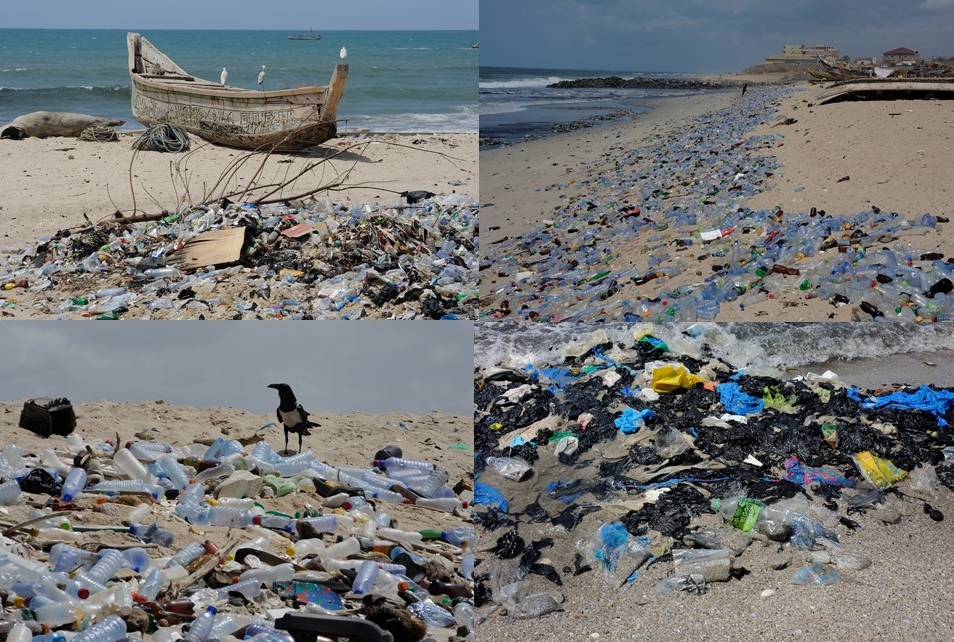A tide of plastic
Water bottles, single-use packaging, plastic bags, disposable cutlery, flip-flops…
Our daily lives would be virtually unimaginable without plastic. Global production has increased more than 20 times over in the past 50 years. Once waste plastic gets into the environment, however, its versatility and durability proves a problem, particularly in the seas: 8 million tonnes of plastic rubbish end up in them every year according to estimates. Once there, it can take hundreds of years for the plastic to gradually decompose.
Germany is among the EU’s chief culprits when it comes to plastic packaging waste, and its amount of single-use plastic bottles is also on the rise. What is more, there is still a lot of catching-up to do on the recycling front to meet the EU’s target of recycling at least 65 per cent by weight of all packaging by the end of 2025 – currently over half of all plastic waste still ends up in the incinerator. Avoiding plastic in our daily consumption too is thus seen as extremely important.
Microplastics, however, present a further problem: often scarcely visible to the naked eye, these are less than 5 millimetres in size and include plastic beads in shower gels, peels and toothpastes, which are designed to enhance cleaning by exerting a scrubbing and abrasive effect. Their use has fallen in recent years as, for example, the polyethylene in peels has been replaced by natural alternatives in some cases. However, even the synthetic polymers present in dissolved or liquid form are regarded as being poorly biodegradable, if at all.
Population growth and changes in consumer behaviour are producing an increasingly large, increasingly complex mountain of waste in Ghana too, but the income that local authorities earn from fees and charges is failing to keep pace with this development. As a result, only about a third of urban refuse is disposed of at the few landfill sites that are available. In many cases, rubbish is only ever burned in the open air, causing severe damage to health. In addition, the risk of malaria and cholera increases – particularly in the dry season – if plastic packaging and water bottles block sewers and form pools of stagnant water: the perfect breeding grounds for mosquitoes.
You can find out here how GIZ is helping Ghana to develop a collection scheme for reusable materials as part of the Ghana-NRW partnership:

- CAUTION: PLASTICS! Chemicals in plastics are posing a risk to the environment and health (German only) (BUND)
- Plastics in the Environment (German Federal Environment Agency 2019)
- MICROPLASTICS and other synthetic polymers in cosmetics. The BUND good shopping guide. (German only) (Bund 2020)
- PLASTIC ATLAS 2019. Facts and figures about the world of synthetic polymers (Heinrich Böll Foundation and Bund 2019)
- Plastic in the Environment. Sources, Sinks, Solutions (German Federal Ministry of Education and Research 2019)
- Prevention of plastic waste in production and consumption by multi-actor partnerships (PREVENT Waste Alliance 2020)
- The New Plastics Economy: Rethinking the future of plastics (Ellen MacArthur Foundation 2016)
- Less plastic waste on the go. Tips and recipes (German only) (Verbraucherzentrale NRW 2018)
- Plastics in Seafood (Greenpeace 2016)
- German Federal Ministry for the Environment, Nature Conservation, Nuclear Safety and Consumer Protection (BMUV): our policy for less plastic waste (German only)
- German Federal Environment Agency: Environmental indicator for plastic (German only)
- German Federal Agency for Civic Education: Plastic Planet (German only)
- Verbraucherzentrale NRW Living without Plastic: answers to frequently asked questions (German only)
- Environmental Action Germany: Stop the tide of plastic (German only)
- German Nature and Biodiversity Conservation Union (NABU): ‘Seas without Plastic’ project (German only)
- PlasticsEurope: Association of Plastics Manufacturers
- PREVENT Waste Alliance
